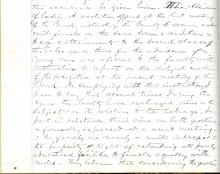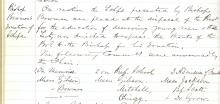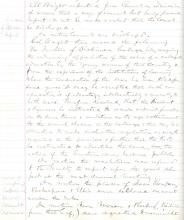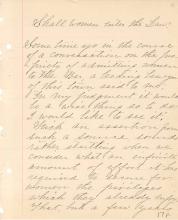The Board of Trustees Discusses the Admission of Women with the Faculty
At the previous meeting on June 27, 1878, the Board of Trustees decided to adopt a resolution allowing women to enroll at Dickinson College. They then sent the resolution to the Faculty for approval. After looking over the resolution, the Faculty agreed that the admission of women was not in the best interest of female students. According to the faculty, "there are certain proprieties & adaptations that can not be overlooked.







